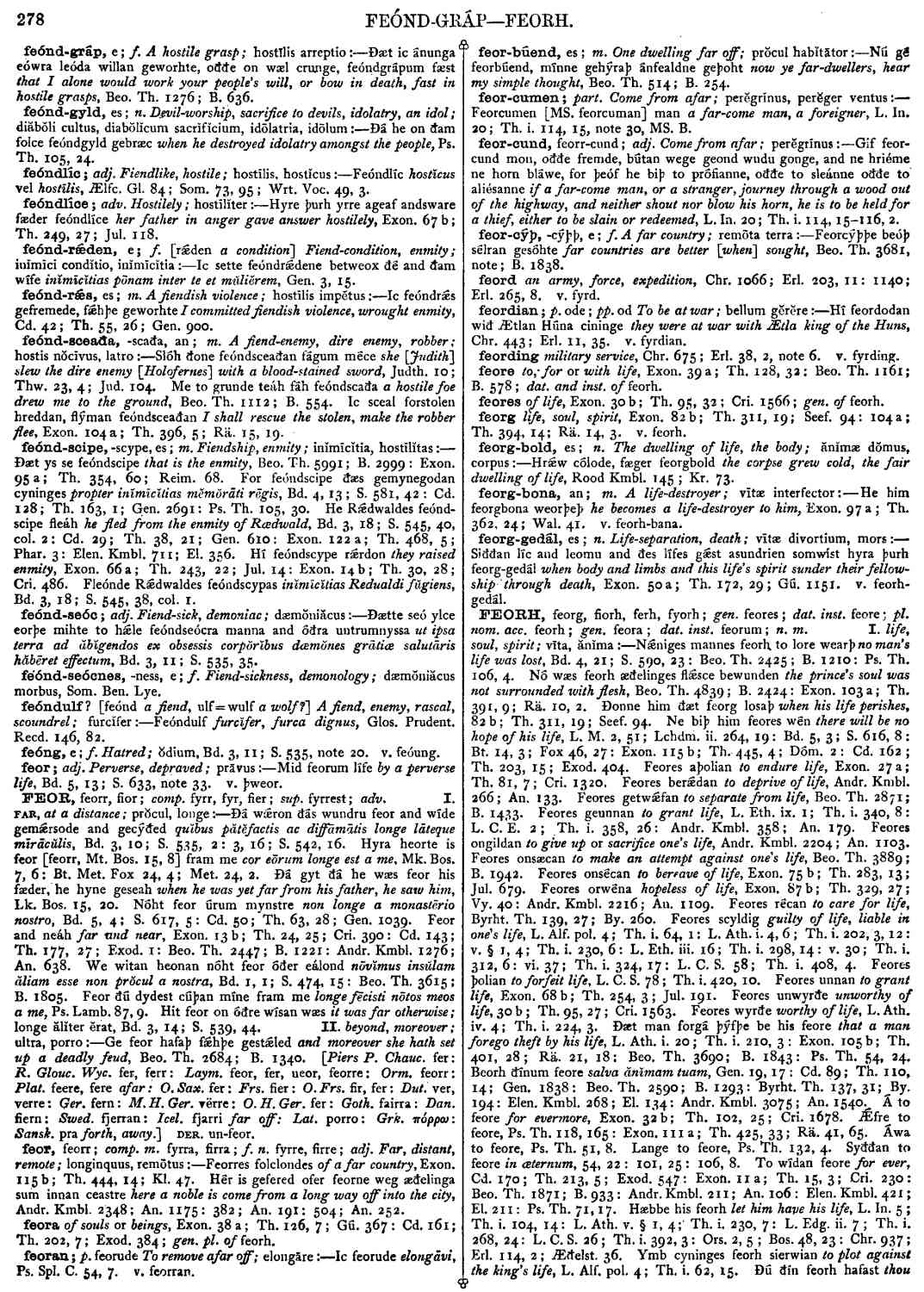FEOR
- adverb
-
Ðá wǽron ðás wundru feor and wíde gemǽrsode and gecýðed
quĭbus pătĕfactis ac diffāmātis longe lāteque mīrācŭlis,
- Bd. 3, l0 ;
- S. 535, 2: 3, 16 ;
- S. 542, 16.
-
Hyra heorte is feor [feorr,
- Mt. Bos. 15, 8
cor eōrum longe est a me,
- Mk. Bos. 7, 6: Bt. Met. Fox 24, 4 ;
- Met. 24, 2.
-
Ðá gyt ðá he wæs feor his fæder, he hyne geseah
when he was yet far from his father, he saw him,
- Lk. Bos. 15, 20.
-
Nóht feor úrum mynstre
non longe a monastērio nostro,
- Bd. 5, 4 ;
- S. 617, 5: Cd. 50 ;
- Th. 63, 28 ;
- Gen. 1039.
-
Feor and neáh
far and near,
- Exon. 13 b ;
- Th. 24, 25 ;
- Cri. 390: Cd. 143 ;
- Th. 177, 27 ;
- Exod. 1: Beo. Th. 2447 ;
- B. 1221: Andr. Kmbl. 1276 ;
- An. 638.
-
We witan heonan nóht feor óðer eálond
nōvĭmus insŭlam ăliam esse non prŏcul a nostra,
- Bd. 1, 1 ;
- S. 474, 15: Beo. Th. 3615 ;
- B. 1805.
-
Feor ðú dydest cúþan míne fram me
longe fēcisti nōtos meos a me,
- Ps. Lamb. 87, 9.
-
Hit feor on óðre wísan wæs
it was far otherwise;
longe ălĭter ĕrat,- Bd. 3, 14 ;
- S. 539, 44.
-
Ge feor hafaþ fǽhþe gestǽled
and moreover she hath set up a deadly feud,
- Beo. Th. 2684 ;
- B. 1340.
Bosworth, Joseph. “FEOR.” In An Anglo-Saxon Dictionary Online, edited by Thomas Northcote Toller, Christ Sean, and Ondřej Tichy. Prague: Faculty of Arts, Charles University, 2014. https://bosworthtoller.com/10380.
Checked: 1